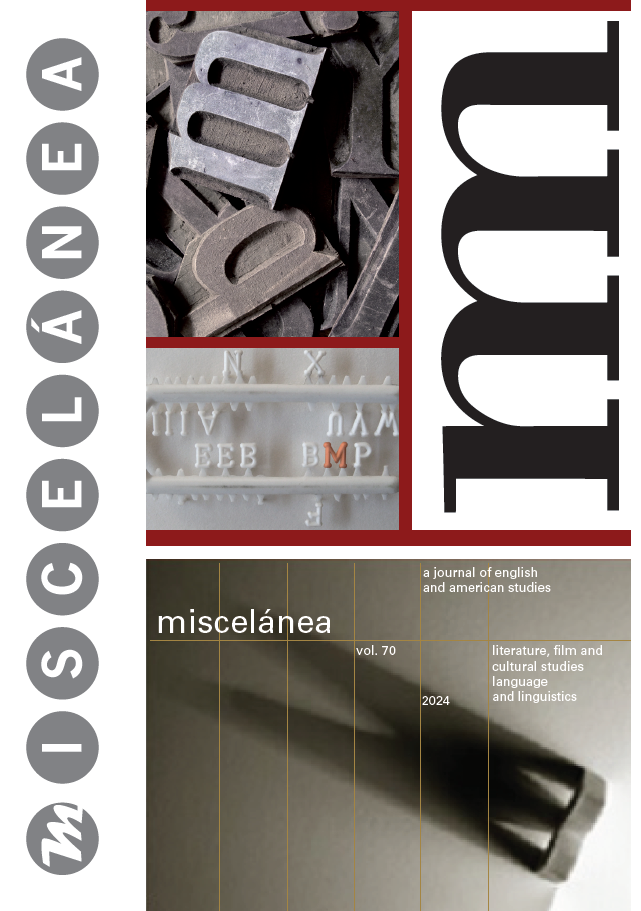Utopianismo estático y cinético en La parabola del sembrador de Octavia Butler
DOI:
https://doi.org/10.26754/ojs_misc/mj.202410023Palabras clave:
utopianismo, utopía, distopía, Parabola del sembrador, EarthseedResumen
Los mundos distópicos están llenos de injusticias, opresiones y gobiernos autoritarios. Estas historias avisan de posibles peligros futuros, pero también contienen positivismo y personajes rebeldes que luchan a través del deseo utópico, como en el caso de Lauren Olamina. Este utopianismo les permite soñar con mundos mejores, libres de injusticias. El objetivo principal de este artículo es el análisis de la confrontación de dos tipos de utopianismo, estático y cinético, mediante la religión en La parábola del sembrador (1993), de Octavia Butler. El utopianismo cinético, representado por Lauren y Earthseed, defiende la adaptabilidad. En cambio, el utopianismo estático, representado por su padre y la religión Bautista, preserva los valores tradicionales y muestra reticencia hacia los cambios. La intención de esta obra no es la de criticar ningún sistema de creencias, sino analizar el impacto que estos dos tipos de utopianismo tienen en la misma sociedad. El artículo concluye que el utopianismo cinético de Lauren y Earthseed permite el cambio que ella quiere en el mundo mediante adaptabilidad y progreso. Por otro lado, el rechazo al cambio y a la adaptabilidad que caracterizan al utopianismo estático, a la larga, les conduce a su propia desaparición.
Descargas
Citas
BACCOLINI, Raffaella. 2004. “The Persistence of Hope in Dystopian Science Fiction”. The Modern Language Association of America 119 (3): 518-521. <https://doi.org/10.1632/003081204X20587>.
BERLIN, Isaiah. 2013. The Crooked Timber of Humanity: Chapters in the History of Ideas. Princeton: Princeton U.P.
BUTLER, Octavia E. (1993) 2019. Parable of the Sower. London: Headline.
CHOUDHURY, Antara and Shreyashi MUKHERJEE. 2023. “Religion and Critical Dystopia: Afrofuturism in Octavia E. Butler’s Parable of the Sower”. IIS University Journal of Arts 12 (3-4): 1-14.
CLAEYS, Gregory. (ed.) 2010. The Cambridge Companion to Utopian Literature. Cambridge: Cambridge U.P.
CLAEYS, Gregory. 2010. “The Origins of Dystopia: Wells, Huxley and Orwell”. In Claeys, Gregory (ed.): 107-134.
DERY, Mark. 2008. “Black to the Future”. In Barr, Marleen S. (ed.) Afro-Future Females: Black Writer’s Chart Science Fiction’s Newest New-Wave Trajectory. Ohio: the Ohio State U.P.: 6-13.
DUTTON, Jacqueline. 2010. “‘Non-western’ Utopian Traditions”. In Claeys, Gregory (ed.): 223-258.
HINTON, Anna. 2018. “Making Do with What You Don’t Have: Disabled Black Motherhood in Octavia E. Butler’s Parable of the Sower and Parable of the Talents”. Journal of Literary and Cultural Disability Studies 12 (4): 441-457. .
JAMESON, Frederic. 2005. Archaeologies of the Future. The Desire Called Utopia and Other Science Fictions. London: Verso.
MILLER, Jim. 1998. “Post-Apocalyptic Hoping: Octavia Butler’s Dystopian/Utopian Vision”. Science Fiction Studies 25 (2): 336-360.
NILGES, Mathias. 2009. “‘We Need the Stars’: Change, Community, and the Absent Father in Octavia Butler’s ‘Parable of the Sower’ and ‘Parable of the Talents’”. Callaloo 32 (4): 1332-1352. <https://www.jstor.org/stable/27743152>.
POPPER, Karl. (1945) 1947. The Open Society and its Enemies. Volume One: The Spell of Plato. Princeton: Princeton U.P.
RUFFIN, Kimberly T. 2005. “Parable of a 21st Century Religion: Octavia Butler’s Afrofuturistic Bridge between Science and Religion”. Obsidian III 6/7: 87-104. <http://www.jstor.org/stable/44511664>.
STILLMAN, Peter G. 2003. “Dystopian Critiques, Utopian Possibilities, and Human Purposes in Octavia Butler’s Parables”. Utopian Studies 14 (1): 15-35. .
VIEIRA, Fatima. 2010. The Concept of Utopia. In Claeys, Gregory (ed.): 3-27.
WANZO, Rebecca. 2005. “Apocalyptic Empathy: A ‘Parable’ of Postmodern Sentimentality”. Obsidian III 6/7: 72-86. <https://www.jstor.org/stable/44511663>.
WELLS, H. G. (1905) 2009. A Modern Utopia. London: Penguin.
WOMACK, Ytasha. 2013. Afrofuturism: The World of Black Sci-fi and Fantasy. Chicago: Independent Publishers Group.
Descargas
Publicado
Cómo citar
Número
Sección
Licencia
Derechos de autor 2024 Lucía Ramírez García

Esta obra está bajo una licencia internacional Creative Commons Atribución-NoComercial 4.0.
Aceptado 2024-07-04
Publicado 2024-12-16


